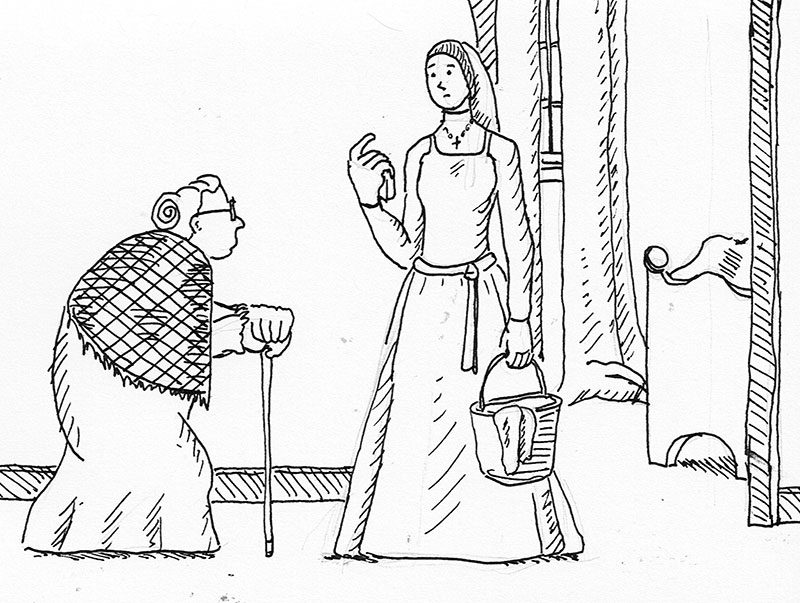We blessed ourselves and came away. In the little room downstairs we found Eliza seated in his arm-chair in state. I groped my way towards my usual chair in the corner while Nannie went to the sideboard and brought out a decanter of sherry and some wine-glasses. She set these on the table and invited us to take a little glass of wine. Then, at her sister’s bidding, she filled out the sherry into the glasses and passed them to us. She pressed me to take some cream crackers also but I declined because I thought I would make too much noise eating them. She seemed to be somewhat disappointed at my refusal and went over quietly to the sofa where she sat down behind her sister. No one spoke: we all gazed at the empty fireplace.
My aunt waited until Eliza sighed and then said:
“Ah, well, he’s gone to a better world.”
Eliza sighed again and bowed her head in assent. My aunt fingered the stem of her wine-glass before sipping a little.
“Did he … peacefully?” she asked.
“Oh, quite peacefully, ma’am,” said Eliza. “You couldn’t tell when the breath went out of him. He had a beautiful death, God be praised.”
“And everything…?”
“Father O’Rourke was in with him a Tuesday and anointed him and prepared him and all.”
“He knew then?”
“He was quite resigned.”
“He looks quite resigned,” said my aunt.
“That’s what the woman we had in to wash him said. She said he just looked as if he was asleep, he looked that peaceful and resigned. No one would think he’d make such a beautiful corpse.”
“Yes, indeed,” said my aunt.
She sipped a little more from her glass and said:
“Well, Miss Flynn, at any rate it must be a great comfort for you to know that you did all you could for him. You were both very kind to him, I must say.”
Eliza smoothed her dress over her knees.
“Ah, poor James!” she said. “God knows we done all we could, as poor as we are—we wouldn’t see him want anything while he was in it.”
Nannie had leaned her head against the sofa-pillow and seemed about to fall asleep.
“There’s poor Nannie,” said Eliza, looking at her, “she’s wore out. All the work we had, she and me, getting in the woman to wash him and then laying him out and then the coffin and then arranging about the Mass in the chapel. Only for Father O’Rourke I don’t know what we’d have done at all. It was him brought us all them flowers and them two candlesticks out of the chapel and wrote out the notice for the Freeman’s General and took charge of all the papers for the cemetery and poor James’s insurance.”
“Wasn’t that good of him?” said my aunt.
Eliza closed her eyes and shook her head slowly.
“Ah, there’s no friends like the old friends,” she said, “when all is said and done, no friends that a body can trust.”
“Indeed, that’s true,” said my aunt. “And I’m sure now that he’s gone to his eternal reward he won’t forget you and all your kindness to him.”
“Ah, poor James!” said Eliza. “He was no great trouble to us. You wouldn’t hear him in the house any more than now. Still, I know he’s gone and all to that….”
“It’s when it’s all over that you’ll miss him,” said my aunt.
“I know that,” said Eliza. “I won’t be bringing him in his cup of beef-tea any more, nor you, ma’am, sending him his snuff. Ah, poor James!”
She stopped, as if she were communing with the past and then said shrewdly:
“Mind you, I noticed there was something queer coming over him latterly. Whenever I’d bring in his soup to him there I’d find him with his breviary fallen to the floor, lying back in the chair and his mouth open.”

